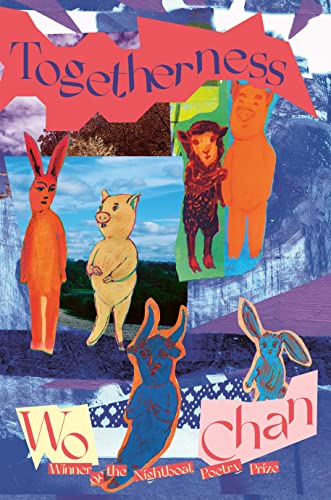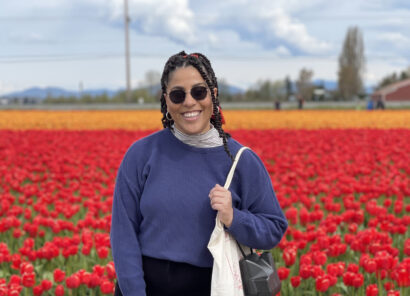Book Review: Wo Chan’s Togetherness

Togetherness by Wo Chan (Nightboat Books, 2022)
Wo Chan’s debut book, Togetherness, is a tender recognition of self and a snapshot of one Chinese immigrant life in the United States. Threaded throughout this collection are stories of life as a restaurant baby, gender(ed) identity, the fight against deportation, kinship (with its many forms and complications), and an exploration of Chan’s own sexuality. With stark imagery and honest prose, Chan never shies from the fluid, the nasty, the absurd, beautiful, erotic, nor the strange – no, they lay it all bare.
Growing up in the only Chinese restaurant in a small Virginian town, Chan explores the tensions in the relationships between the restaurant and mother, father, brother, labor, and race throughout. In “Reading the Yelp reviews of your family’s restaurant –a mistake” Chan writes: “Twenty-three reviews. Your mother’s English, taped up with smiles, your father’s eyes peeking out from the kitchen, and your brother, who remains an asshole in every description. Lauren M. details in a one-star review an argument over a delivery that he brought to her house.” The poet moves us through the Yelp review to unveil the jolting reality of the characters within the poem: “Your brother becomes angry and slams a full box of food onto her driveway. In February, the steam rises from the wet noodles on the asphalt, rising with his heavy breathing. Your brother is thirty-two and has spent exactly half his life delivering food. Your mother has shingles and no doctor. Your father has hypertension, no doctor.” The poet plays with the categorization of “broken” English, with the isolation of working in the American dining industry as an immigrant, and the sheer exhaustion of half a life spent in labor. Three distinct experiences of exploitation, isolation, and xenophobia, all of which are invalidated in a one-star review.
In an artist talk hosted on Western Washington University’s campus, Chan stated that “poetry should be felt through the body…poetry is about shaping breath.” This embodied understanding and the making of poetry is evident throughout Chan’s book and begins with the first line. This hitch of breath, this physical response as a reader, was especially present in poems like “my mother’s face, and what do i make of my face / except,” and “Years Flow by Like Water.” Chan creates visceral images of puckering pores such as: “i was nineteen my (face) / erupted/ nodular cysts/ the bleeding Jupiter kind.” Yes, it’s true: Chan’s poetry is felt in the body.
During the artist talk on campus, when asked by a student if they could say one thing to themselves and wholly believe it, what would they say? Chan said: “I’m arriving at OK.” After reading the brilliance that is Togetherness, I wholly believe it.
Grace Dunbar-Miller (she/they) is a poet and nonfiction writer, and educator. Their work often incorporates threads of her own experience with kinship, Blackness, intimacy, the body, and haunting. Grace is a PhD dropout and received her BA and MA in English Literature from Western Washington University. Grace’s reviews are currently published in the International Examiner and their creative nonfiction work is forthcoming at Split Lip Magazine.
